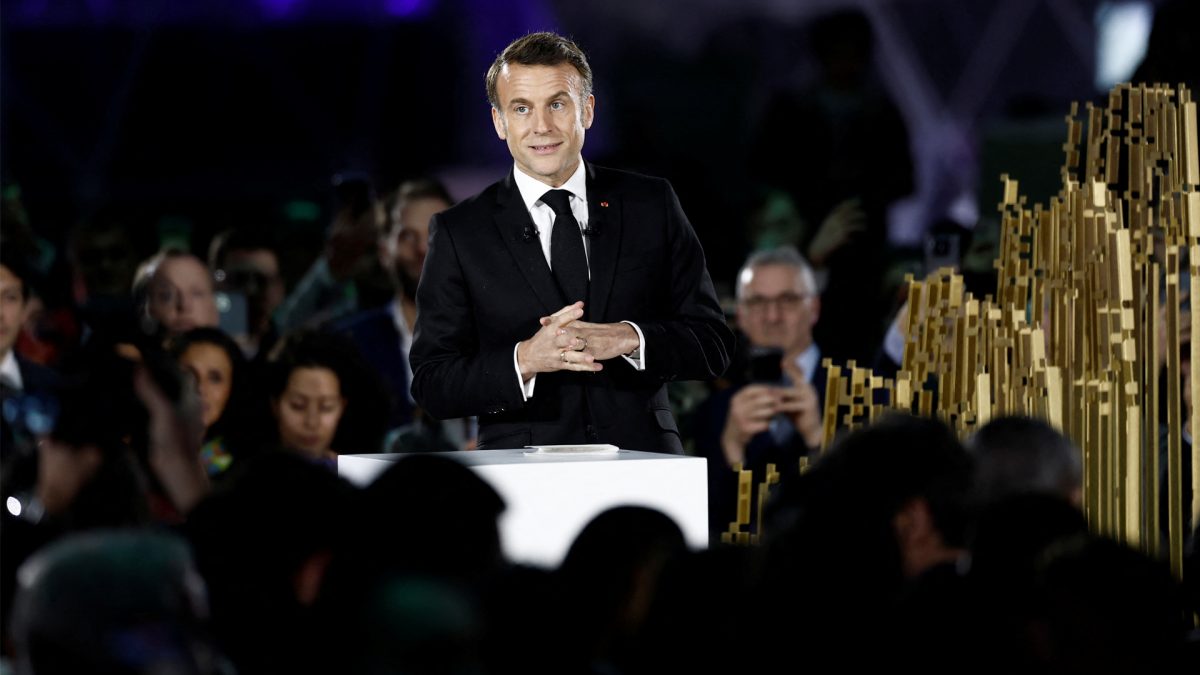French President Emmanuel Macron announced that Europe is ready to loosen its grip on regulations to give AI innovation a much-needed boost. Speaking at the Paris AI Action Summit on Monday, Macron urged global investors to back the EU’s tech ambitions, with a particular focus on France. The move is aimed at keeping Europe competitive in the face of countries like the US, which has already relaxed AI rules under pressure to stay ahead in the tech race.
“We need to catch up with the world,” Macron said, promising simpler, business-friendly regulations. He even referenced the quick rebuilding of Notre-Dame cathedral, made possible by cutting through red tape, suggesting that a similar approach could work wonders for AI development.
Streamlining for success
Henna Virkkunen, the EU’s digital chief, echoed Macron’s message, admitting that Europe’s current rules might be holding back progress. She emphasised that the EU would reduce bureaucratic hurdles and overlapping regulations to make life easier for businesses, as per a Reuters report.
Europe’s stance on AI regulation has been stricter than the US and China. While the EU passed the world’s first comprehensive AI Act last year, critics say these stringent measures could stifle innovation. Alphabet CEO Sundar Pichai urged EU leaders to foster more innovation ecosystems like the one developing in France. Virkkunen agreed, assuring attendees that regulatory streamlining was a top priority to help European companies thrive in the global AI race.
A new initiative called “Current AI” was launched at the summit, backed by France, Germany, and tech giants like Google and Salesforce. With an initial $400 million in funding and a goal to raise $2.5 billion over five years, the project will focus on public-interest work, including making high-quality data available for AI and investing in open-source tools.
Martin Tisne, the founder of Current AI, stressed that AI needs to avoid repeating the negative impacts social media has had, warning that lessons from the past must guide future development.
France secures billions in AI investments
Macron also announced that private companies have pledged 109 billion euros in AI investments for France. Among these is French AI startup Mistral, which plans to build a data centre near Paris. Clem Delangue, CEO of US-based AI platform Hugging Face, said the size of the investments reassured him that France is serious about fostering ambitious AI projects.
Additionally, the summit organisers hope to secure a global declaration committing to inclusive and sustainable AI development. However, it remains unclear whether the US will support the initiative. US Vice President JD Vance is scheduled to give a speech on Tuesday, where he is expected to outline America’s position on the issue.
Balancing innovation and protection
While many are eager to see AI innovation flourish, others at the summit expressed caution. Brian Chen, a policy director at the US-based nonprofit Data & Society, warned that international pressure could weaken the EU’s AI Act and reduce critical protections, as per the Reuters report.
Labour leaders also voiced concerns about how AI might affect workers. They emphasised the risks of automation displacing people into lower-paid, less secure jobs. The challenge, they argued, is to ensure that technological advancements don’t come at the expense of workers’ rights and livelihoods.
The Paris summit highlights the EU’s delicate balancing act: encouraging AI development while maintaining safeguards. For now, Europe is betting that cutting red tape and encouraging investment will help it stay competitive in the rapidly evolving AI landscape.
)